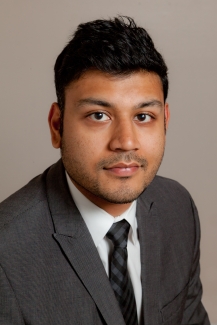
Healthcare is undergoing a change in how patients interact with their data, a shift that is "most evident with the explosion of mHealth and wearables the past five years," says Sanket Shah, an adjunct professor of biomedical and health information science at the University of Illinois-Chicago.
Even Apple is getting in on the health record boom, acquiring Gliimpse, a personal health record platform that allows for healthcare team data sharing and collection. But Shah tells FierceMobileHealthcare that while “big” names such as Apple can help in adoption of health record systems, "it's not necessarily a requirement to ensure success."
"I look back to Google’s attempt to gather personal health information [Google Health] and ultimately see a lack of adoption and even security concerns, which led to the demise of this conceptually similar initiative," he says. "The key here is Apple’s engagement strategy."
Shah, who works as an analytic product and strategy consultant at Blue Health Intelligence, also spoke about current mobile health trends and the challenges associated with health data management.
FierceMobileHealthcare: What impact will Apple's interest in health data apps have on patient care and outcomes?
Sanket Shah: Apple’s long-term strategy is going to be to have their users store all of their medical history on their phones. Not only would this include existing conditions and documented health occurrences, but it could store users’ data that the actual phone or watch is gathering. That can include how are they sleeping, eating, exercising and living. They may also look to use DNA sequencing and family history, linking it all together so it’s in one place.
With all of this data gathered, the phone or Watch itself will be informing users on what is wrong, reminding them to take their prescriptions, or encouraging them to visit their primary care physicians. The amount of data gathered from existing health records, real-time tracking and historical information will ultimately produce advanced algorithms that will lead to better health outcomes and an improved quality of life for the patient.
FMH: What is the top challenge in healthcare data management? What do you expect will be needed to overcome this challenge?
Shah: Overcoming the data silos. Right now, most of the information gathered stays within a system and sharing the information across the healthcare continuum safely and securely is one of the biggest roadblocks the industry is facing. Interoperability also plays a role with data management, and it’s imperative to have collaborative partnerships from organizations like Apple, the providers of health systems and payers to help break down this barrier. With the recent news on Gliimpse, we may see some of these partnerships announced in the next year as Apple reveals more details on their healthcare strategy.
FMH: Where do apps stand today in the healthcare ecosystem?
Shah: Mobile health has been a booming industry and the user community is growing rapidly alongside it. We’re currently leveraging self-reported conditions, basic fitness/life tracking and perhaps a “watered down” version of our healthcare history.
However, none of this information is really shared with our providers or even our families, which often results in the consumer not having the combination of information to make informed decisions about their health. In the next three to five years, we’re going to see more predictive analytics within mHealth, as well as more interconnectivity between health systems and thought leaders such as Apple and other organizations which will help bring together these disparate data sources and create the bridges that the consumer is seeking.
Editor's Note: This interview has been edited for clarity and length.